Related Research Articles
Sierra Leone first became inhabited by indigenous African peoples at least 2,500 years ago. The Limba were the first tribe known to inhabit Sierra Leone. The dense tropical rainforest partially isolated the region from other West African cultures, and it became a refuge for peoples escaping violence and jihads. Sierra Leone was named by Portuguese explorer Pedro de Sintra, who mapped the region in 1462. The Freetown estuary provided a good natural harbour for ships to shelter and replenish drinking water, and gained more international attention as coastal and trans-Atlantic trade supplanted trans-Saharan trade.
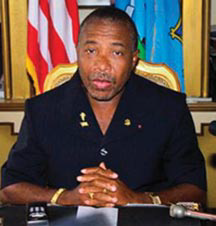
Charles McArthur Ghankay Taylor is a Liberian former politician and convicted war criminal who served as the 22nd president of Liberia from 2 August 1997 until his resignation on 11 August 2003 as a result of the Second Liberian Civil War and growing international pressure.

The Îles de Los are an island group lying off Conakry, Guinea, on the west coast of Africa. Their name is derived from the Portuguese Ilhas dos Ídolos, meaning "islands of the idols". They are located about two kilometres off the headland limiting the southern side of Sangareya Bay.

Nathaniel Gordon was an American slave trader who was the only person in the United States to be tried, convicted, and executed by the federal government for having "engaged in the slave trade" under the Piracy Law of 1820.

Sengbe Pieh, also known as Joseph Cinqué or Cinquez and sometimes referred to mononymously as Cinqué, was a West African man of the Mende people who led a revolt of many Africans on the Spanish slave ship La Amistad in July 1839. After the ship was taken into custody by the US Revenue-Marine, Cinqué and his fellow Africans were eventually tried for mutiny and killing officers on the ship, in a case known as United States v. The Amistad. This reached the U.S. Supreme Court, where Cinqué and his fellow Africans were found to have rightfully defended themselves from being enslaved through the illegal Atlantic slave trade and were released. The US government did not provide any aid to the acquitted Mende People. The United Missionary Society, a black group founded by James W.C. Pennington, helped raise money for the return of thirty-five of the survivors to Sierra Leone in 1842.
Vice admiralty courts were juryless courts located in British colonies that were granted jurisdiction over local legal matters related to maritime activities, such as disputes between merchants and seamen.

Paul Cuffe, also known as Paul Cuffee was an African American and Wampanoag businessman, whaler and abolitionist. Born free into a multiracial family on Cuttyhunk Island, Massachusetts, Cuffe became a successful merchant and sea captain. His mother, Ruth Moses, was a Wampanoag from Harwich, Cape Cod and his father an Ashanti captured as a child in West Africa and sold into slavery in Newport about 1720. In the mid-1740s, his father was manumitted by his Quaker owner, John Slocum. His parents married in 1747 in Dartmouth.
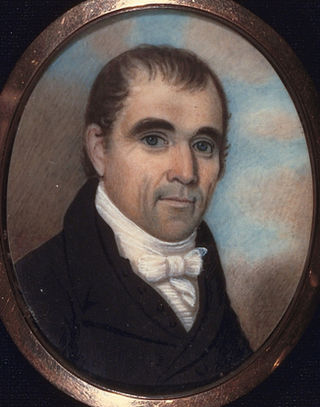
Robert Thorpe was a judge and political figure in Upper Canada and was later chief justice of Sierra Leone.

The Special Court for Sierra Leone, or the "Special Court" (SCSL), also called the Sierra Leone Tribunal, was a judicial body set up by the government of Sierra Leone and the United Nations to "prosecute persons who bear the greatest responsibility for serious violations of international humanitarian law and Sierra Leonean law" committed in Sierra Leone after 30 November 1996 and during the Sierra Leone Civil War. The court's working language was English. The court listed offices in Freetown, The Hague, and New York City.
The Sierra Leone Company was the corporate body involved in founding the second British colony in Africa on 11 March 1792 through the resettlement of Black Loyalists who had initially been settled in Nova Scotia after the American Revolutionary War. The company came about because of the work of the ardent abolitionists Granville Sharp, Thomas Clarkson, Henry Thornton, and Thomas's brother John Clarkson, who is considered one of the founding fathers of Sierra Leone. The company was the successor to the St. George Bay Company, a corporate body established in 1790 that re-established Granville Town in 1791 for the 60 remaining Old Settlers.
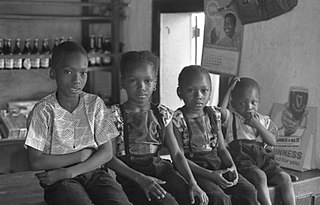
The Temne, also called Atemne, Témené, Temné, Téminè, Temeni, Thaimne, Themne, Thimni, Timené, Timné, Timmani, or Timni, are a West African ethnic group. They are predominantly found in the Northern Province of Sierra Leone. Some Temne are also found in Guinea. The Temne constitute the largest ethnic group in Sierra Leone, at 35.5% of the total population, which is slightly bigger than the Mende people at 31.2%. They speak Temne, which belongs to the Mel branch of the Niger–Congo languages.
Sir Charles MacCarthy, KCMG was an Irish soldier of French and Irish descent, who later was appointed as British military governor to territories in West Africa, including Sierra Leone. His family had continued ties to France through the Irish Brigade. MacCarthy followed a maternal uncle into serving with royal French forces, Charles with units under émigré direction. He also served in the Dutch and British armies.
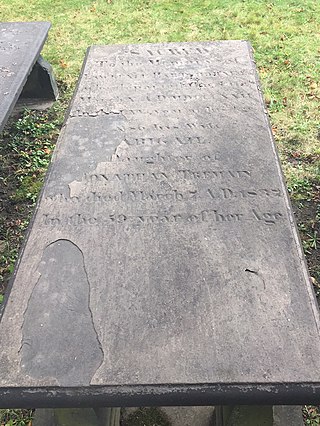
The Nova Scotian Settlers, or Sierra Leone Settlers, were African Americans and Black Canadians of African-American descent who founded the settlement of Freetown, Sierra Leone and the Colony of Sierra Leone, on March 11, 1792. The majority of these black American immigrants were among 3,000 African Americans, mostly former slaves, who had sought freedom and refuge with the British during the American Revolutionary War, leaving rebel masters. They became known as the Black Loyalists. The Nova Scotian Settlers were jointly led by African American Thomas Peters, a former soldier, and English abolitionist John Clarkson. For most of the 19th century, the Settlers resided in Settler Town and remained a distinct ethnic group within the Freetown territory, tending to marry among themselves and with Europeans in the colony.

The African Institution was founded in 1807 after British abolitionists succeeded in ending the slave trade based in the United Kingdom. The Institution was formed to succeed where the former Sierra Leone Company had failed—to create a viable, civilised refuge for freed slaves in Sierra Leone, in West Africa. It was led by James Stephen and William Wilberforce. From 1823, its work was mostly taken over by the Society for the Mitigation and Gradual Abolition of Slavery Throughout the British Dominions, and it ceased to exist sometime between 1826 and 1828.
A Mixed Commission Court was a joint court set up by the British government with Dutch, Spanish or Portuguese representation following treaties agreed in 1817 and 1818. By 1820 there were six such courts. This occurred during a period often referred to as Pax Britannica, a period of British hegemony following the defeat of the Napoleonic Empire.
Kenneth Macaulay (1792-1829) was a merchant and colonial official in British Sierra Leone during the early nineteenth century. Macaulay served as Acting-Governor of Sierra Leone and was appointed as a member of His Majesty's Colonial Council. He was a second cousin of Zachary Macaulay, the abolitionist and member of the Clapham Sect.
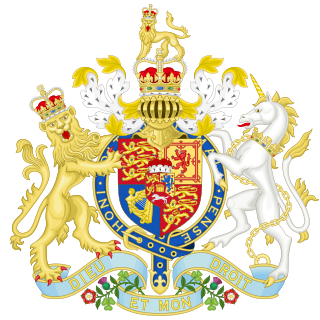
The Slave Trade Felony Act 1811 was a piece of British legislation that made engagement in the slave trade a felony. The earlier Slave Trade Act 1807 merely imposed fines that were insufficient to deter entrepreneurs from engaging in such a profitable business. The contexts in which it could be applied and how these sat within international criminal law gave rise to controversy. Henry Brougham was the principal proponent of the act.
William Henry Leigh (1781–1818) was a British merchant, slave trader and former colonial official in Sierra Leone during the early nineteenth century.
Donna Marianna was a vessel that left Liverpool in 1809. On 22 May 1810 HMS Crocodile seized Donna Marianna for breach of the Act for the abolition of the slave trade. The Vice admiralty court at Freetown, Sierra Leone, condemned Donna Mariana and her owners appealed the decision. The result of the appeal was a finding against the owners in a case that became an important milestone in the suppression of the slave trade.
Kitty was a French vessel taken in prize c. 1810. She became a West Indiaman and then, following a change of ownership, a privateer. She was one of only two British privateers to target slave traders. She captured three off Sierra Leone before one of her targets captured her in 1814, killing her master, enslaving some of her crew, and setting fire to her.
References
- 1 2 3 Haslam, Emily (2012). "Redemption, Colonialism and International Criminal Law". In Kirkby, Diane (ed.). Past law, present histories. Canberra, Acton, A.C.T.: ANU E Press. ISBN 9781922144034.
- ↑ Swartz, B.K. (1980). West African Culture Dynamics: Archaeological and Historical Perspectives. United States: Walter de Gruyter.
- 1 2 3 4 . 1813 – via Wikisource.
- 1 2 Schafer, Daniel l. (2003). Heuman, Gad J.; Walvin, James (eds.). The Slavery Reader, Volume 1. London: Routledge.